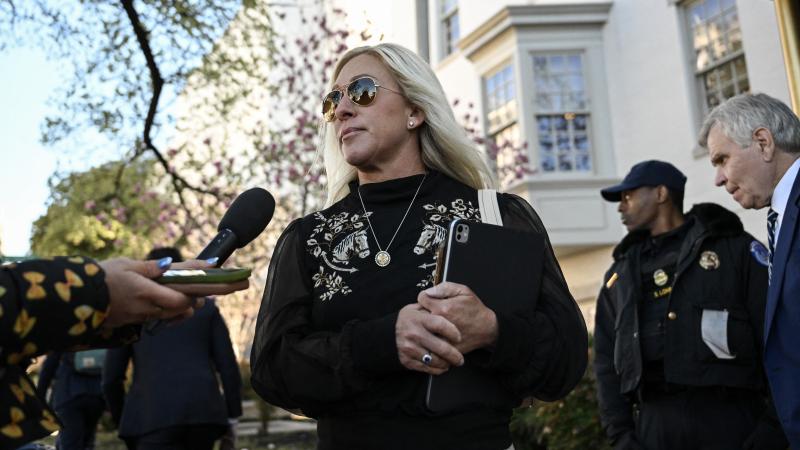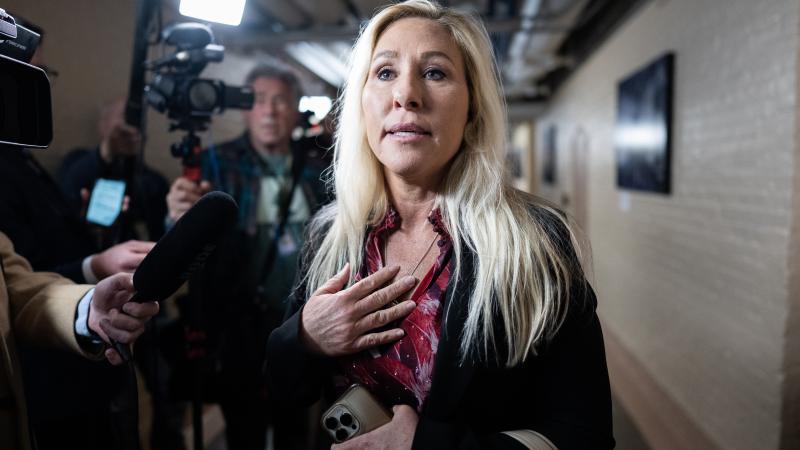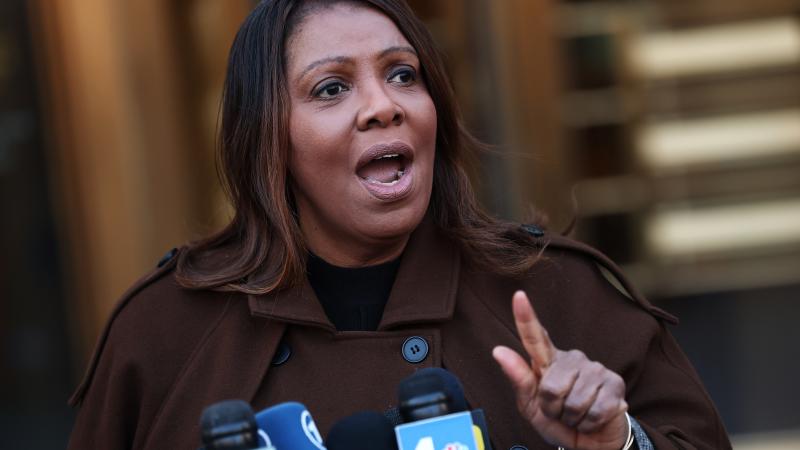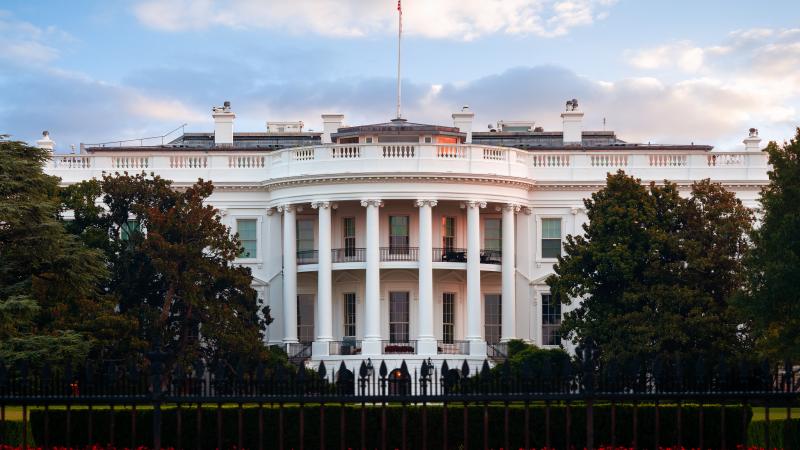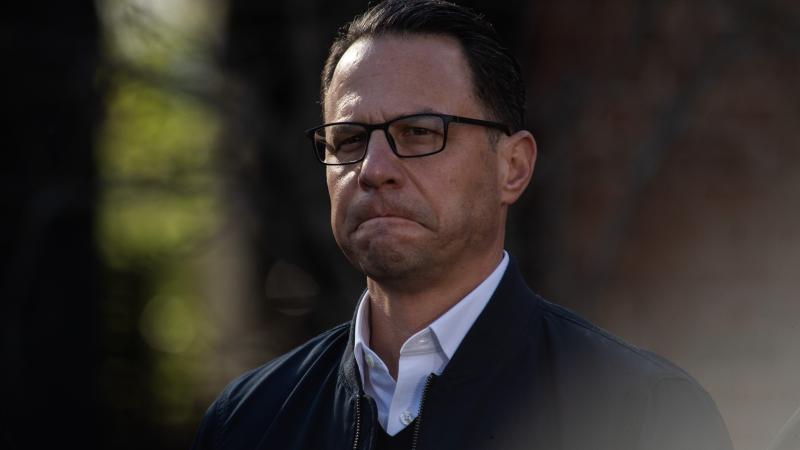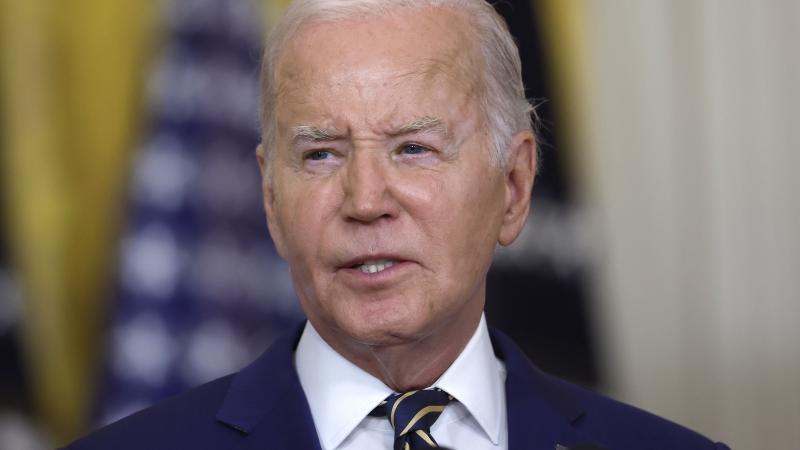Her husband killed himself five weeks into Zoloft. She just got a meeting with RFK Jr.'s nemesis.
Kim Witczak has crusaded for informed consent in antidepressants for two decades and more recently joined with Marty Makary, now FDA commissioner, to demand FDA accurately label COVID-19 vaccines.
COVID-19. Influenza. Depression.
The next shoe to drop among incessantly touted pharmacological interventions for routine maladies may be the antidepressants taken by 1-in-8 American adults between 2015 and 2018 – apparently the latest federal figures available – and whose usage among young women spiked during the COVID-19 pandemic, especially 12-17 year-olds.
More than two dozen Democratic federal lawmakers want to squelch 40 years of concerns about possible connections between antidepressants and violence or self-harm, given perhaps its highest profile yet by Health and Human Services Secretary Robert F. Kennedy Jr., who said in a confirmation hearing, "We are over-medicating our entire population."
Led by Minnesota Sen. Tina Smith, they wrote to Kennedy last month to protest the Make America Healthy Again Commission's first meeting to discuss the "threat posed by the prescription of selective serotonin reuptake inhibitors, antipsychotics, mood stabilizers, [and] stimulants" and Kennedy's similar statements.
"For individuals living with moderate or severe depression, anxiety, schizophrenia, or other conditions, medication can alleviate symptoms so they can function normally and have improved quality of life," the Democrats wrote March 20.
"We urge you to retract your harmful and false comments on mental illness and the usage of SSRIs," such as Kennedy's comparison of the addictiveness of heroin and SSRIs, they wrote.
Smith said she benefited from "a new generation" of SSRIs as a young woman "struggling with depression," telling Kennedy at his confirmation hearing the drugs helped "clear my mind, get me back on track to being a mom and a wife and a productive happy person."
Smith, however, subsequently agreed to meet with her constituent Kim Witczak, who just completed her third term as the consumer representative on the Food and Drug Administration's Psychopharmacologic Drugs Advisory Committee and had been trying to schedule a meeting with Smith for two months, Witczak told Just the News on Thursday.
PDAC dismissed a Prozac-suicide link at a 1991 hearing, four years after the first SSRI was introduced in America, but the issue of severe side effects from antidepressants didn't go away. Danish researchers presented evidence of a new one at the recent European Society of Cardiology conference: sudden cardiac death in ages 30 and up.
Witczak became an advocate after her husband, Woody, committed suicide in 2003, five weeks into his off-label insomnia treatment with Zoloft, despite no history of depression or suicidality. She testified at PDAC in 2006, as did the law firm representing her, and helped secure black-box suicide warnings on antidepressants.
More recently, she has demanded more accurate labeling of COVID-19 vaccines, joining with now-FDA Commissioner Marty Makary in an unsuccessful "petition for administration action" for the agency to force vaccine makers to disclose that trials failed to show they can stop transmission or death, in light of false information peddled by Biden administration officials.
Witczak had hoped to meet with Smith in person while in Washington, D.C., this month, but the senator's staff made it a virtual meeting for this week, Witczak told Just the News.
"From the invite, it looks like there will be others attending as well," and Witczak is bringing one of her long-time expert collaborators. "I’ll also be sharing internal documents from both drug companies and the FDA – materials I obtained during litigation against Pfizer."
She speculated Smith may have changed her mind after reviewing her attachments – 15 peer-reviewed studies and "2004 FDA Reviewer Testimony" from a congressional hearing – or seeing that Witczak also shared them with Kennedy, National Institutes of Health Director Jay Bhattacharya and the FDA's Makary, her ally in the fight for accurate COVID vaccine labeling.
Witczak also pointed to recent rebuttals by clinical psychologist Gretchen Watson, who once led psychological assessment services at Virginia's Children’s Hospital of The King’s Daughters, and Australian research scientist-turned-investigative journalist Maryanne Demasi.
Smith's office didn't answer Just the News queries to confirm it had agreed to meet with Witczak and the timing.
'Kennedy is not asserting causation – he is calling for more research'
Even before promising to nail down a culprit for autism by this fall, Kennedy put a big target on his back in confirmation hearings and a leaked video addressing HHS staff by claiming that psychiatric drugs including SSRIs have been "insufficiently scrutinized" and "nothing is going to be off limits" for the MAHA Commission.
He told the Senate Finance Committee that 15% of American youth are taking ADHD medications and "even higher percentages are on SSRIs and benzo[diazepine]s, possibly referring to a 2023 NIH-sponsored University of Michigan survey.
Even a 2023 Psychology Today essay by father-daughter duo Jack and Sara Gorman that tried to salvage the reputation of antidepressants, starting with conclusory statements about their effectiveness under "key points," acknowledged that research consistently found their performance mediocre, especially compared to non-drug forms of treatment.
The congressional letter led by Senator Smith repeatedly accused Kennedy of stigmatizing people with mental illness by questioning the safety of drugs and "promoting disproven and outright false theories" such as a "link between school shooters and psychotropic drugs," which they said is contradicted by two peer-reviewed studies, both behind paywalls.
"Fear of judgment and discrimination can cause those living with a mental health condition or illness to delay or avoid care, which will only increase suffering and may lead to deteriorating conditions and increasing symptoms," they wrote.
Witczak reiterated her Feb. 7 meeting request two months later, telling Just the News "I was honestly stunned by how irresponsible and uninformed" Smith's letter was but relieved the senator then agreed to a meeting.
"As I have been saying for decades, drug safety isn’t a red or blue issue," she told Smith in the April 7 letter, noting the FDA's own black-box warning and former Minnesota Democratic Attorney General Mike Hatch – who called the FDA a "lapdog" for pharma – joining her Pfizer lawsuit for "wrongful death and failure-to-warn."
The attached studies, published in the British Medical Journal, Lancet and specialty psychiatry journals and summarized in Witczak's own chart, "collectively present serious concerns about the safety and efficacy of antidepressants, particularly among youth," she wrote.
"The studies highlight issues such as clinical trial misconduct, data manipulation, regulatory failure, and preventable harm – all of which warrant urgent attention in the context of policy development," she said.
By urging Kennedy to "adhere to the well-established and widely accepted scientific and medical consensus" on antidepressants, Smith and other Democratic lawmakers are reinforcing the problem, "appealing to authority to shut down inquiry rather than fostering critical examination," investigative journalist Demasi's analysis said.
"Kennedy is not asserting causation –he is calling for more research," she wrote.
Smith's letter cited no study backing Democrats' claim that informed consent dissuades people from seeking treatment and acknowledged "youth mental health needs have only increased in the past five years" even as 43% of kids ages 3-17 are already taking such medication, Demasi said: "The contradiction is glaring."
She said Democrats can't rule out a connection between school shootings and SSRIs because privacy laws "restrict access to shooters' full medical histories" and BMJ research has documented "significant discrepancies" such as "underreporting of suicide attempts and aggressive behaviour" between published studies and "confidential regulatory documents."
Clinical psychologist Watson, writing in former Senate pharma corruption investigator Paul Thacker's newsletter, said Smith should "stop spreading lies and misinformation about the known links between antidepressants and violence, facts which anyone can find by reading the scientific literature and the FDA-approved labels for these medicines."
She said Big Pharma helped shut down her studies two decades ago at Eastern Virginia Medical School, showing that kids were being prescribed "psychotropics at rates many times higher than leading pharma-funded experts claimed," and especially in her backyard of Hampton Roads, which has a large black population and produced several black celebrities.
For reporting these kids did not have "favorable" outcomes, "I was characterized as an anti-medication zealot and accused of scientific misconduct," Watson wrote.
The Facts Inside Our Reporter's Notebook
Videos
Links
- 1 in 8 American adults between 2015 and 2018
- young women spiked during the COVID-19 pandemic
- 40 years of concerns about possible connections
- "we are overmedicating our entire population
- Make America Healthy Again Commission
- Democrats wrote March 20
- PDAC dismissed a Prozac-suicide link
- Danish researchers presented evidence of a new one
- Witczak became an advocate
- husband Woody committed suicide
- She testified at PDAC in 2006
- law firm representing her
- black-box suicide
- warnings on antidepressants
- unsuccessful "petition for administration action"
- clinical psychologist Gretchen Watson
- Maryanne Demasi
- promising to nail down a culprit for autism
- leaked video addressing HHS staff
- University of Michigan survey
- Psychology Today
- two peer-reviewed studies
- both behind paywalls
- Mike Hatch â who called the FDA a "lapdog" for pharma â joining her Pfizer lawsuit
- BMJ research
- produced several black celebrities


